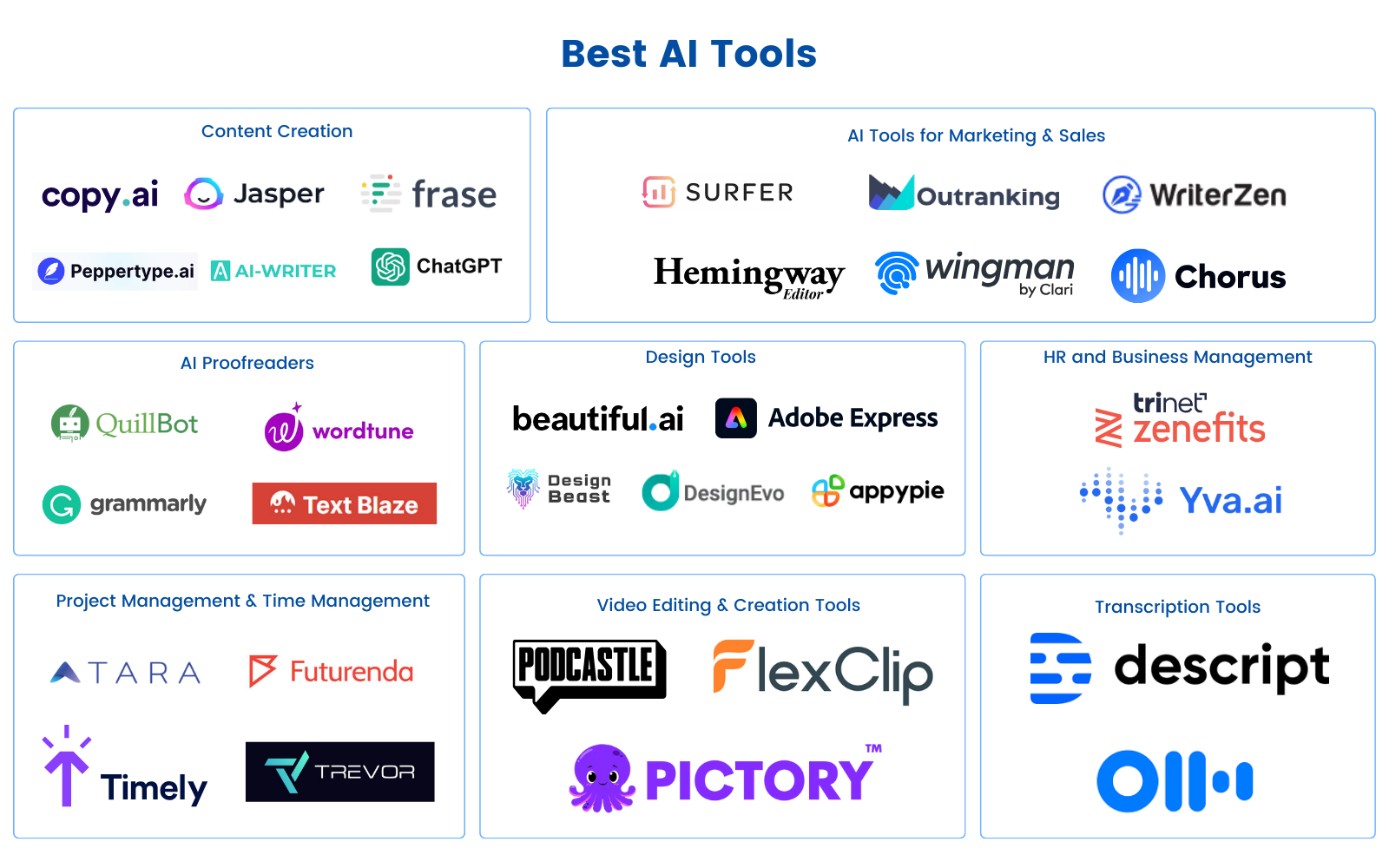Top AI Websites / Tools
-
ChatGPT (OpenAI)
-
What it is: Large-language-model chatbot. Can write, translate, summarize, code etc. Fullstack Academy+2Synthesia+2
-
Pros: Very versatile; many integrations; good for general tasks.
-
Cons: Paid tiers needed for advanced features; sometimes “hallucination” (wrong info).
-
-
Claude (Anthropic)
-
What it is: Similar to ChatGPT, focused on safety, helpfulness, etc. Fullstack Academy+2Exploding Topics+2
-
Pros: Good for long-form content; strong reasoning.
-
Cons: Might lag behind in certain features; pricing can matter.
-
-
Google Gemini / Google AI Studio
-
What it is: Google’s suite of AI models and tools. Gemini is the user-facing assistant; AI Studio for building. Business Insider+2futurepedia+2
-
Pros: Strong infrastructure; multimodal (text, image) capabilities; useful if already in Google ecosystem.
-
Cons: In some regions, access or speed may vary; paid features.
-
-
Perplexity AI
-
What it is: Conversational search + info retrieval with citations. Exploding Topics+2Synthesia+2
-
Pros: Good for research; shows sources; keeps you from blindly believing outputs.
-
Cons: Free version has limits; for very deep technical or specialized queries might be less precise.
-
-
DeepL
-
What it is: Translation + writing polishing. Exploding Topics+1
-
Pros: Very high translation quality; good for multilingual writing.
-
Cons: Less strong for generative content (creativity); paid for full features.
-
-
Canva (Magic Studio etc.)
-
What it is: Graphic design + image generation and editing, templates, etc. Exploding Topics+1
-
Pros: Very beginner-friendly; many templates; quick visual content.
-
Cons: Less control for advanced artists; many premium elements cost extra.
-
-
Grammarly
-
What it is: Writing assistant, error correction, tone / style suggestions. Exploding Topics+1
-
Pros: Helps polish writing; useful for non-native speakers.
-
Cons: Might not generate content from scratch; sometimes suggestions are generic.
-
-
Magai
-
What it is: Platform that lets you use many AI models in one chat; switch between models; collaborate. Magai
-
Pros: Good for comparing outputs; flexible.
-
Cons: Using many models can be confusing; privacy / cost trade-offs.
-
-
DeepSeek
-
What it is: AI chatbot from China; gaining popularity. Wikipedia+1
-
Pros: Strong performance in many standard tasks; often cheaper.
-
Cons: Concerns around censorship, data privacy in some reports.
-
-
Microsoft Copilot
-
What it is: AI assistant integrated into Microsoft products (Office etc.). Exploding Topics+1
-
Pros: Works well if you use Windows / Office tools; convenient.
-
Cons: May be less flexible outside Microsoft ecosystem; pricing.
-
-
Jasper.ai
-
What it is: Focused on marketing content, social media copy, etc. Emory Tech Bootcamps+1
-
Pros: Pre-built templates; tone/style adjustments; useful for marketers.
-
Cons: Might generate generic content; costs add up for heavy users.
-
-
Midjourney
-
What it is: Image generation from text prompts; strong design / artistic style. Emory Tech Bootcamps
-
Pros: Beautiful artistic outputs; many styles.
-
Cons: Not always “realistic”; can require prompt-engineering skill; costs.
-
-
Stable Diffusion
-
What it is: Open-source image generation; more customizable. Emory Tech Bootcamps
-
Pros: More control; many community tools; can run locally.
-
Cons: Needs more technical skill; hardware requirements for local use.
-
-
Copy.ai
-
What it is: Copy generation (ads, social media posts, etc.). Emory Tech Bootcamps
-
Pros: Fast; many templates; good for marketing content.
-
Cons: Outputs may need editing; sometimes formulaic.
-
-
Synthesia
-
What it is: AI-video generation with avatars, etc. Synthesia+1
-
Pros: Great for videos without needing live actors; supports many languages.
-
Cons: Premium cost; customization/realism can be limited.
-
-
You.com
-
What it is: Search + assistant tools; many models via single interface. Wikipedia+2Medium+2
-
Pros: Convenient; integrates writing, image tools, etc.; privacy features.
-
Cons: Some features behind paywalls; relative newness so evolving.
-
-
Poe (by Quora)
-
What it is: Chatbot aggregator; multiple AI-models in one platform. Exploding Topics+1
-
Pros: Try different models; compare; flexible.
-
Cons: May be slower; model switching might have limits.
-
-
Lumio AI
-
What it is: Multi-model workspace; allows comparing outputs from ChatGPT, Claude, etc. Wikipedia
-
Pros: Good to see different model strengths; collaboration.
-
Cons: Newer; might have fewer users; potential stability or regional limitations.
-
-
Removе.bg
-
What it is: AI image tool to remove backgrounds. Exploding Topics
-
Pros: Very quick; useful for graphics, product photos etc.
-
Cons: One-function; free version has limits.
-
-
Character.ai
-
What it is: Create / interact with AI “characters”; roleplay etc. Exploding Topics
-
Pros: Fun; creative; good for entertainment or brainstorming.
-
Cons: Less used for serious work; outputs not always precise.
-

